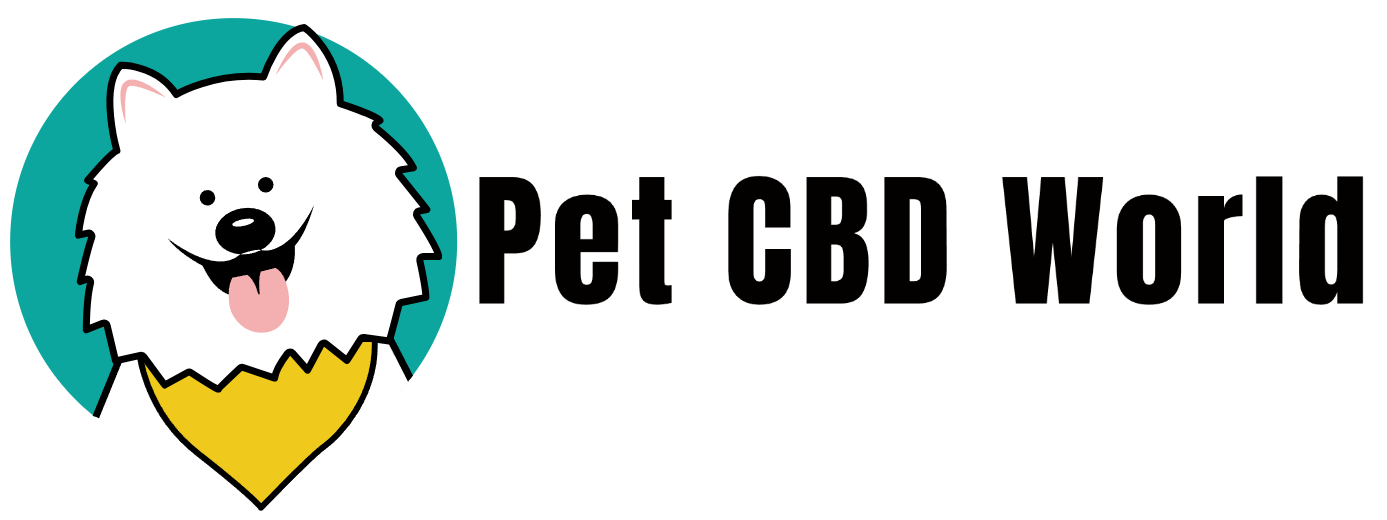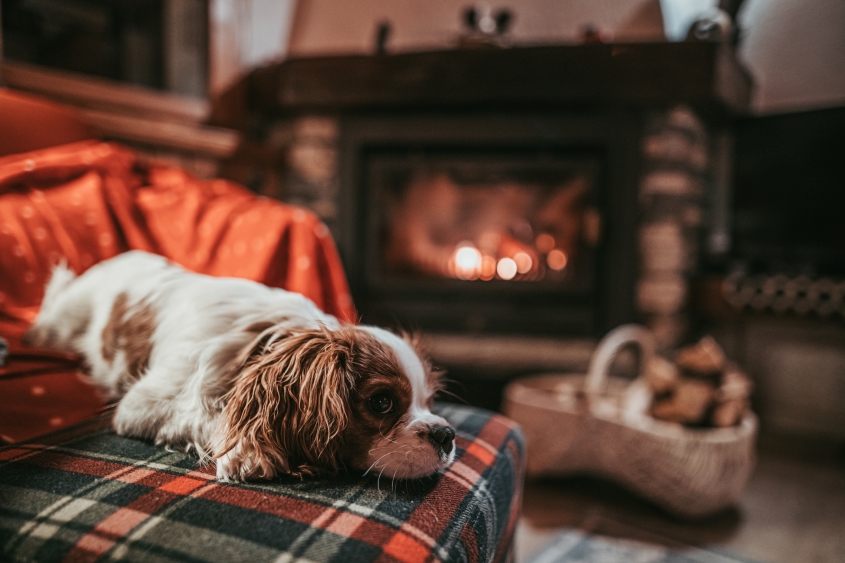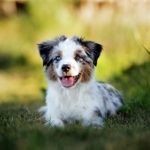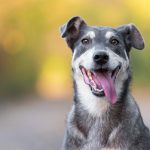The holiday season brings excitement, decorations, delicious food, and family gatherings, but it also presents unique hazards for your dog. As much as we love celebrating, it’s important to be aware of the potential dangers that come with the season, from festive decorations to harmful foods. Here’s a guide to common holiday hazards for dogs and how to keep your pet safe.
1. Toxic Foods and Treats
Many of the foods we enjoy during the holidays are harmful or even toxic to dogs. While it’s tempting to share your feast with your furry friend, certain holiday treats can cause serious health issues.
- Chocolate: Chocolate, especially dark chocolate, contains theobromine, which is toxic to dogs. It can cause vomiting, diarrhea, rapid breathing, seizures, and even death in severe cases.
- Grapes and raisins: Grapes and raisins can cause kidney failure in dogs, even in small amounts. This includes foods like fruitcakes or cookies that may contain raisins.
- Onions and garlic: Common ingredients in holiday dishes like stuffing, onions, and garlic can damage a dog’s red blood cells, leading to anemia.
- Nuts: Macadamia nuts are especially toxic to dogs, causing symptoms like vomiting, tremors, and weakness. Other nuts, such as walnuts, can cause stomach upset or choking.
- Alcohol: Alcoholic beverages pose a risk of intoxication, coma, and even death in dogs. Ensure that no alcoholic drinks are left unattended where pets can access them.
- Xylitol: This sugar substitute found in candies, baked goods, and gum is extremely toxic to dogs and can cause a rapid drop in blood sugar levels, seizures, and liver failure.
2. Decorations and Tinsel
Holiday decorations, although festive, can pose physical risks for dogs if they’re not careful.
- Christmas tree lights and cords: Dogs may be tempted to chew on electrical cords, risking electric shock or burns. Always secure cords out of reach and consider using a cord cover.
- Tinsel and ribbons: Dogs may chew on tinsel, ribbons, or garland, which can cause intestinal blockages or injury. Swallowed decorations can become tangled in the intestines, requiring surgical removal.
- Ornaments and glass decorations: Hanging glass ornaments or fragile decorations can shatter easily if knocked down, potentially causing cuts or injury to your dog. Opt for unbreakable decorations when possible.
- Tree water: If you have a live tree, the water at the base of the tree may contain preservatives or chemicals that can be harmful if ingested. Avoid letting your dog drink from the tree stand.
3. Candles and Fireplaces
During the winter months, candles and fireplaces add a cozy touch to the home, but they also pose risks.
- Candles: Dogs may accidentally knock over candles, causing fires or burns. Always place candles out of reach or use flameless alternatives.
- Fireplaces: Make sure the fireplace is securely closed off or has a protective barrier to prevent your dog from getting too close to the flames. Heat and sparks from the fire can cause burns.
4. Holiday Plants
Many festive plants are toxic to dogs. These plants are common during the holidays and should be kept out of reach.
- Poinsettias: While not as toxic as some other plants, poinsettias can cause mild gastrointestinal upset if ingested.
- Mistletoe and holly: Both mistletoe and holly are toxic to dogs and can lead to nausea, vomiting, and diarrhea if ingested.
- Christmas Cactus: Though less toxic, Christmas cacti can cause stomach upset if your dog eats them. Keep them high or in a location your dog can’t reach.
5. Holiday Stress and Anxiety
For many dogs, the holiday season can be overwhelming, particularly with the hustle and bustle of family gatherings, changes in routine, and loud noises from fireworks or parties.
- Visitors and noise: New faces, crowded spaces, and loud music can cause anxiety for dogs. Some dogs may be fearful of strangers or overwhelmed by the noise. Set up a quiet space for your dog to retreat to, away from the chaos.
- Travel stress: Traveling during the holidays can disrupt your dog’s routine, causing stress and anxiety. Plan ahead to ensure a safe and comfortable journey for your dog, whether you’re flying or driving.
- Fireworks and noisemakers: Many dogs are scared of loud noises, including fireworks or party poppers. Keep your dog indoors during fireworks displays, and consider calming aids like pheromone diffusers or anxiety wraps if your dog struggles with noise-induced anxiety.
6. Holiday Parties and Gatherings
Holiday parties can be full of excitement and distractions, but it’s important to keep your dog safe and well-supervised during these events.
- Unsupervised access to food: Guests may unknowingly feed your dog scraps from the table, which could be harmful. Make sure to have a safe space for your dog away from the food.
- Choking hazards: Small objects like party favors, confetti, or balloons can pose choking hazards if swallowed. Keep these items out of reach of your dog.
- Crowds and commotion: In busy environments, there’s a risk that your dog might get stepped on or injured by excited guests. Ensure your dog has a quiet, safe area where they can rest and relax.
7. Cold Weather Hazards
Cold temperatures and winter weather can be just as dangerous for dogs as the other holiday hazards.
- Salt and de-icers: Chemicals used to melt snow and ice on sidewalks can be harmful to your dog’s paws and stomach if ingested. Wipe your dog’s paws after walks, and avoid areas that use these chemicals.
- Frostbite and hypothermia: Dogs that are outside in cold weather for extended periods are at risk of frostbite or hypothermia. Keep outdoor dogs warm, and consider a doggy sweater or coat for short-haired dogs.
- Frozen water: Avoid letting your dog drink from frozen water sources such as ponds or lakes, as this can lead to choking or ingestion of harmful bacteria.
How to Keep Your Dog Safe During the Holidays
- Be mindful of food: Keep human food out of reach, and educate guests not to feed your dog. Have dog-friendly treats available for your pet instead.
- Secure decorations: Choose dog-friendly decorations, keep electrical cords covered, and make sure ornaments are safely hung out of reach.
- Provide a quiet space: Set up a quiet area away from the holiday chaos where your dog can relax.
- Regular exercise: Make sure your dog gets regular exercise during the holidays to burn off extra energy and avoid stress.
- Supervise your dog: Keep a close eye on your dog during holiday gatherings to prevent accidents and keep them from ingesting harmful substances.
Conclusion
The holiday season should be a time of joy for both you and your dog, but it’s important to be aware of the potential hazards that come with the celebrations. By staying mindful of toxic foods, decorations, plants, and stressful situations, you can ensure that your dog stays safe and happy throughout the holiday season. As always, if you’re unsure whether something might be harmful to your dog, it’s best to consult with your veterinarian for guidance.



